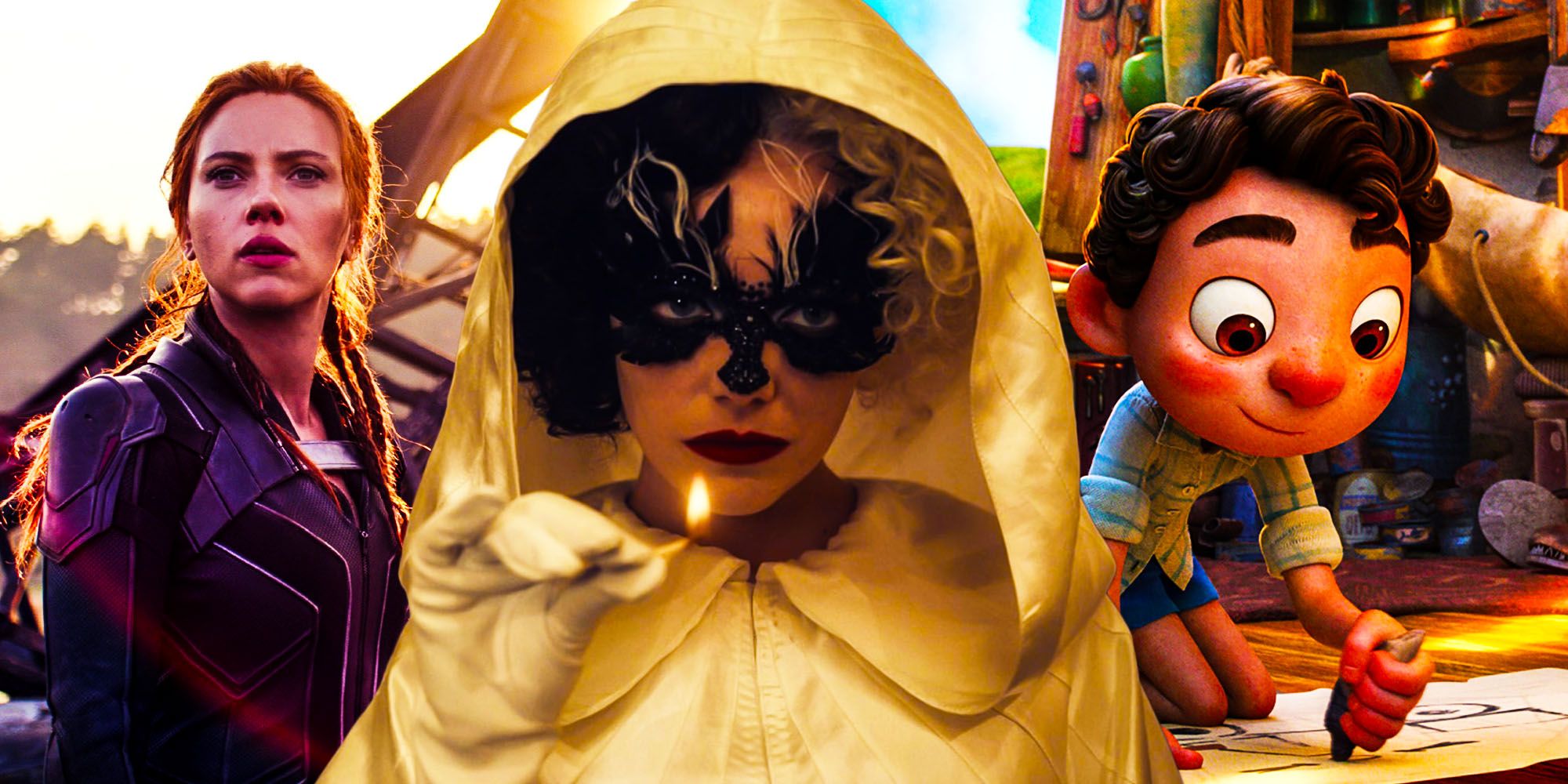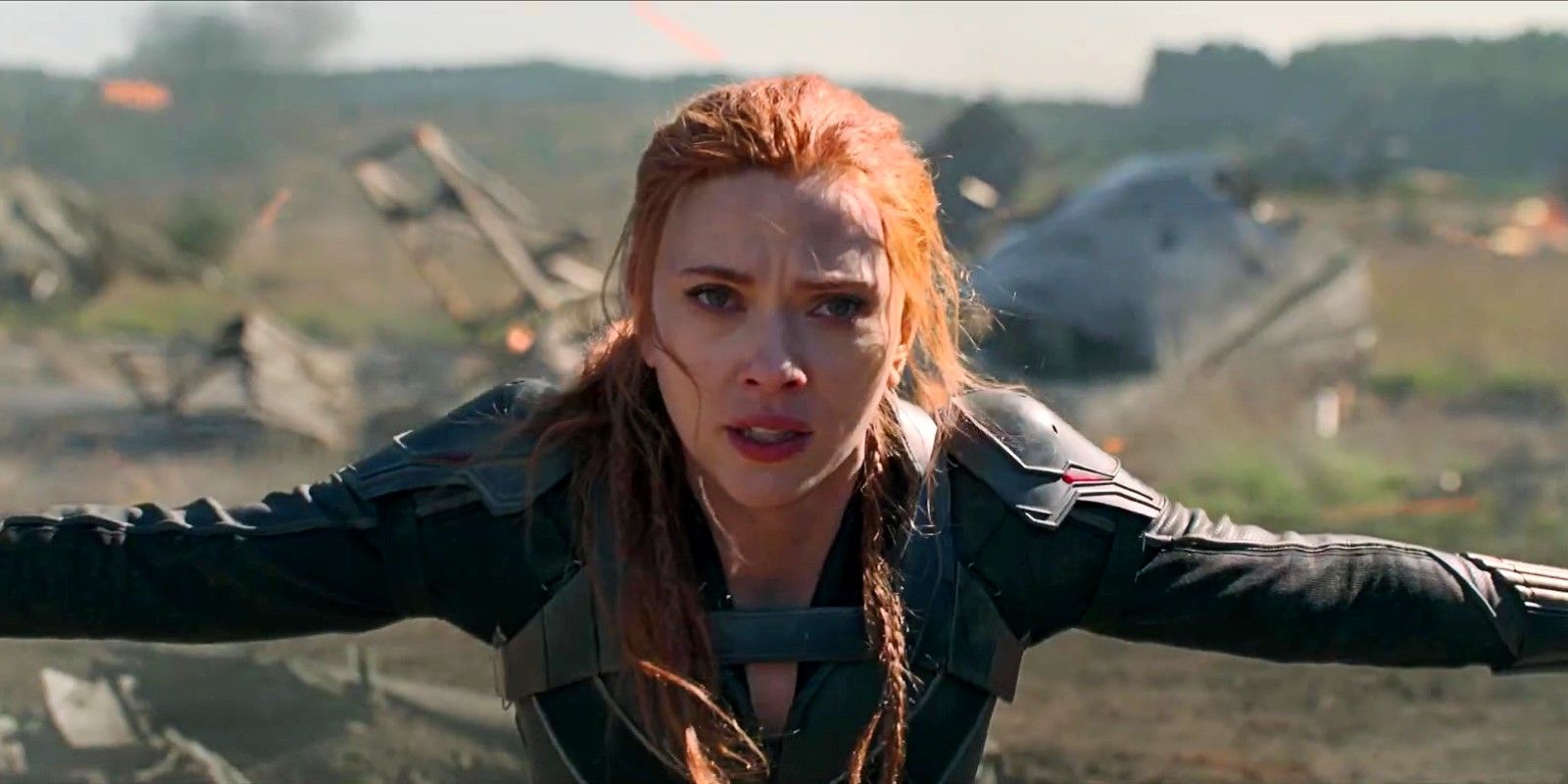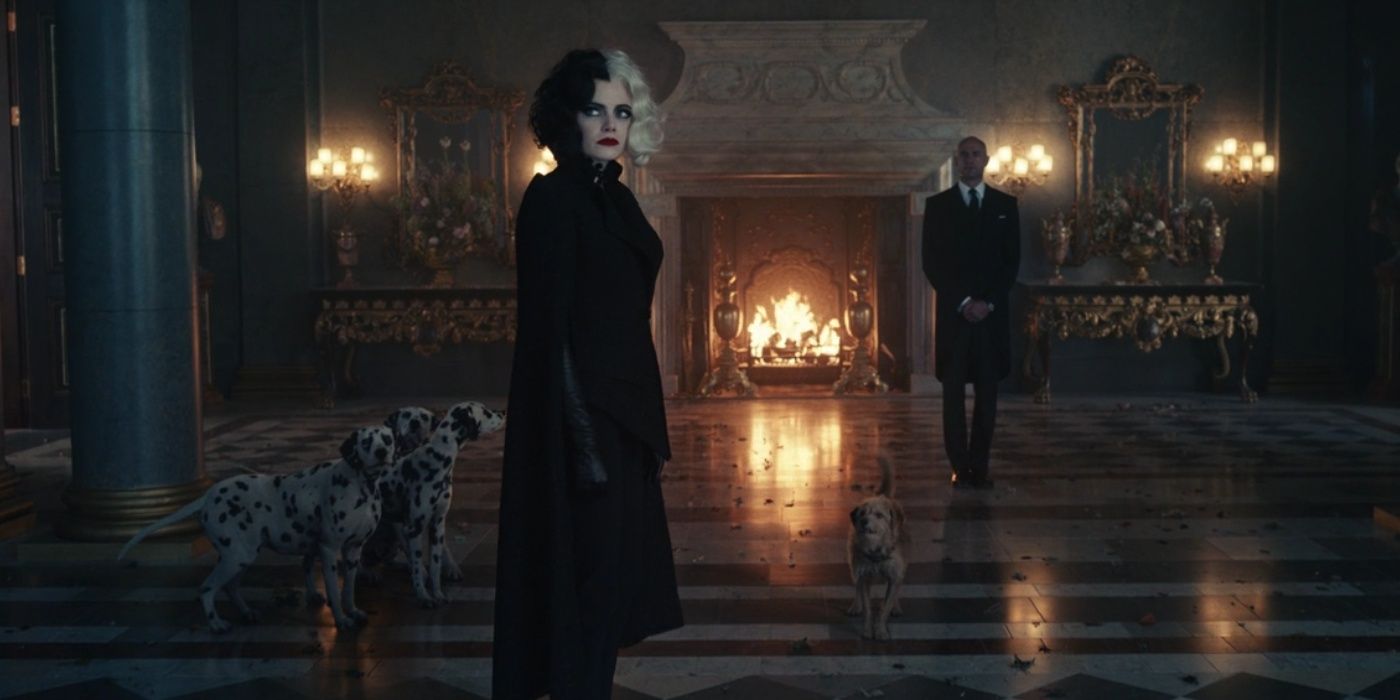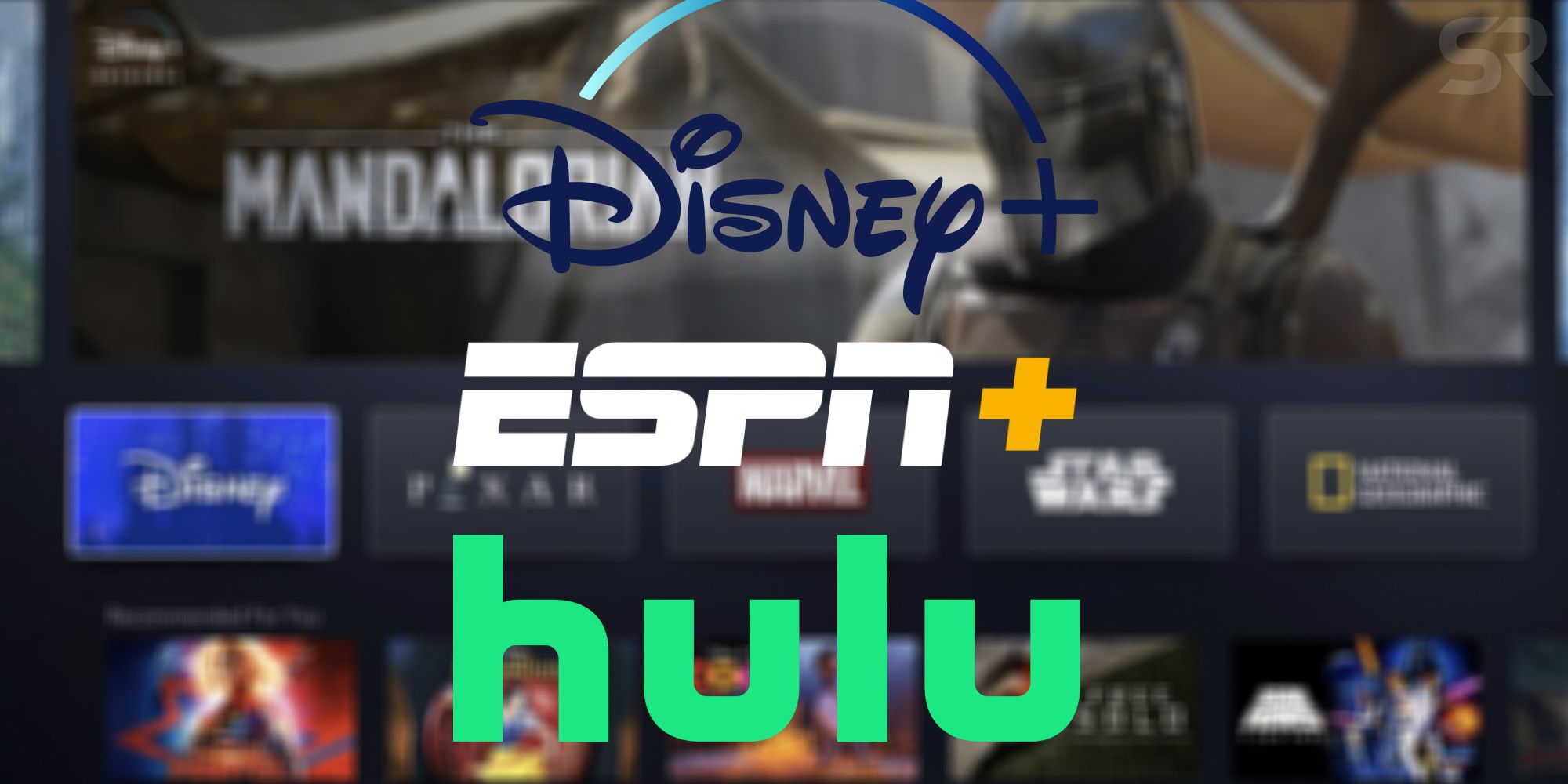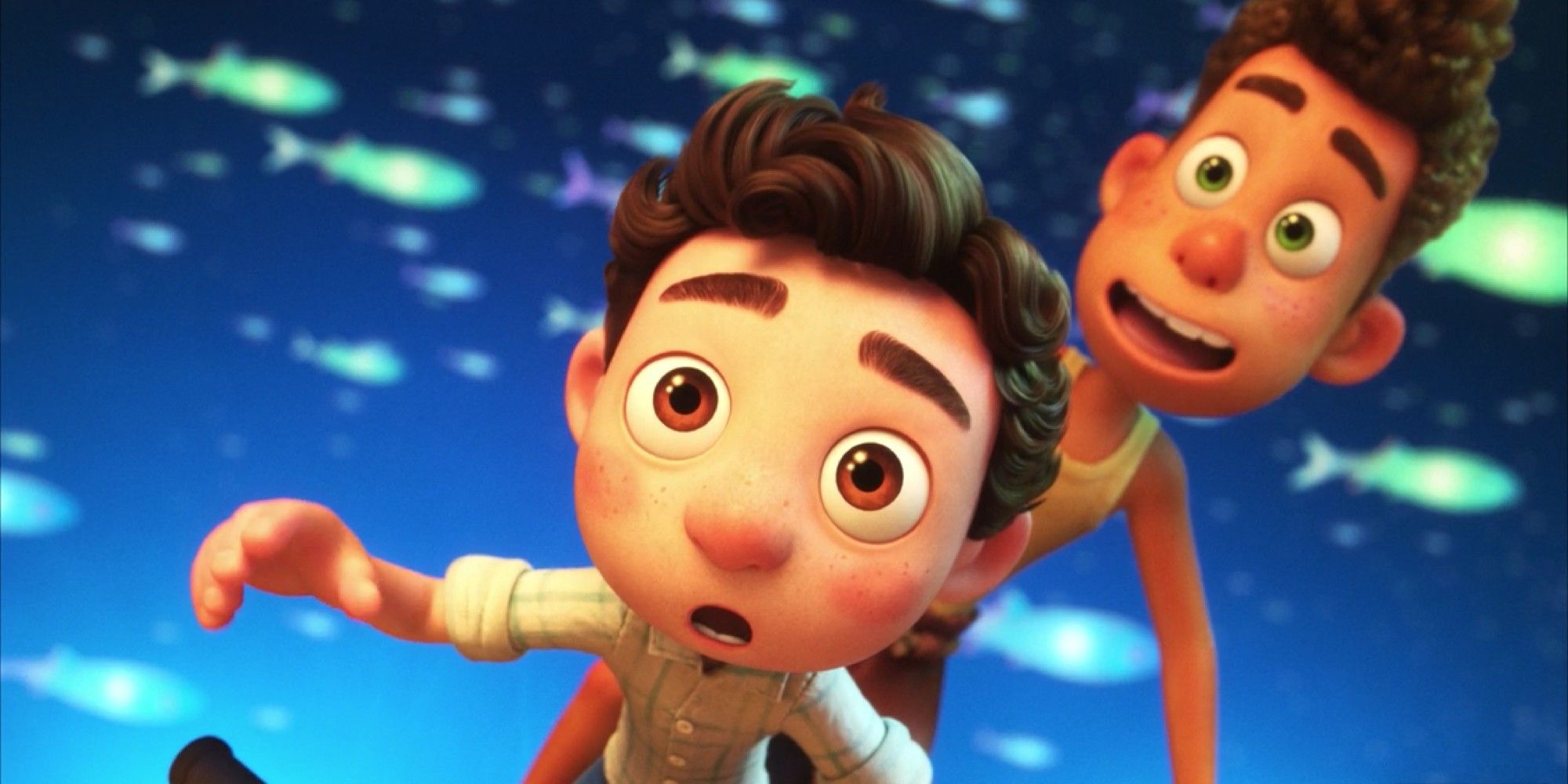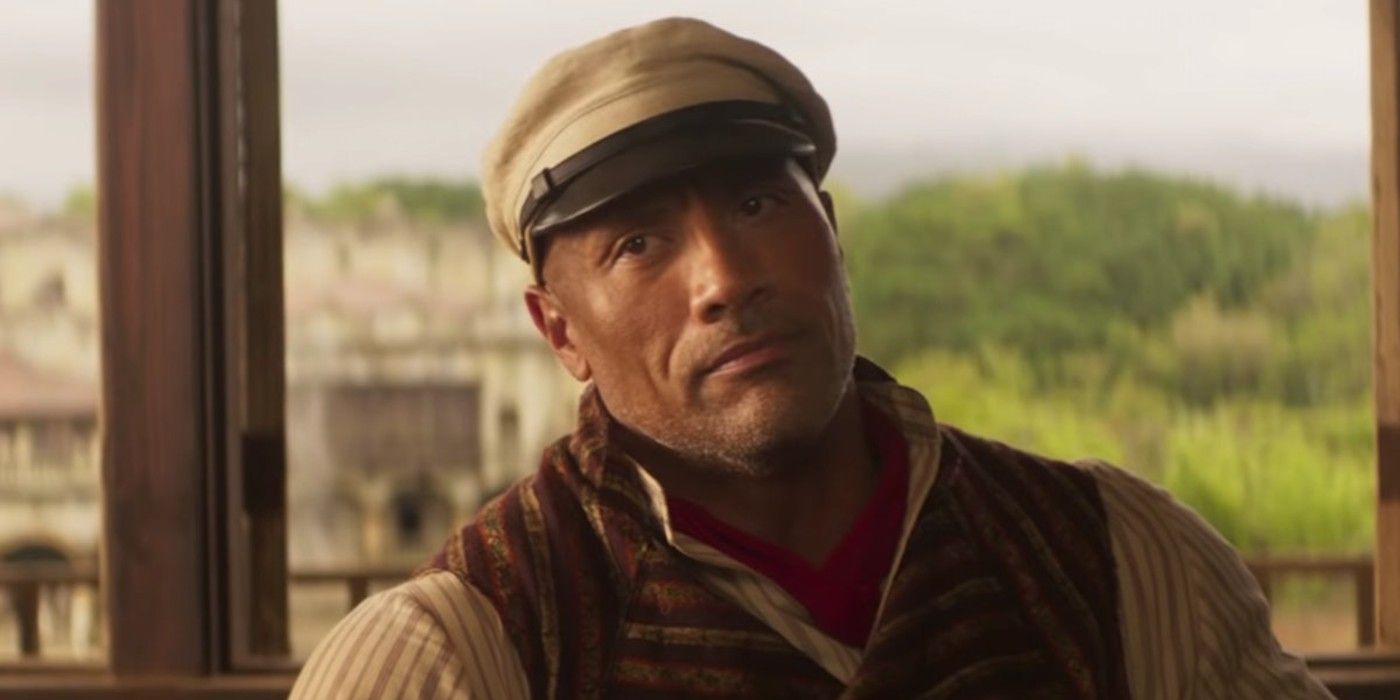While Disney+'s Premier Access was originally received as a clever adaptation to COVID-19 restrictions, controversies around this new release model have begun to surface. With Black Widow star Scarlett Johansson announcing her lawsuit against Disney, discussions surrounding the effects of Disney+'s release model have been front and center, but the Marvel film is far from the streaming service's only controversy.
Disney+, Disney's own streaming platform, launched on November 12, 2019. The platform would host every favorite viewers could desire — including Marvel and Star Wars films — alongside exclusive new titles. When the COVID-19 pandemic hit shortly after, entertainment companies were scrambling to maintain profits in a time when many theaters were closed or empty. This gave rise to an increased demand for in-home releases, including Disney+'s Premier Access. For $29.99, subscribers would have unlimited access to new films upon their release. Frequently, a film's theatrical and Premier Access release have been on the same day, though a few have enjoyed exclusive theatrical releases. Some films, despite their potential, were released directly to Disney+ for free. While this model has provided profits for Disney's higher-ups, those that produce the films and rely on box office profits have expressed their discontent around the model.
Disney isn't the only company to face backlash thanks to their new release model. Warner Bros. faced issues from multiple partners over its choice to release all 2021 films on HBO Max, upsetting the likes of AMC Theatres CEO Adam Aron, director Christopher Nolan, and Legendary Entertainment, who has financed films like Dune and Godzilla vs. Kong. Actor Gerard Butler filed a similar suit to Johansson's in the same week, suing Nu Image, Millennium Media, and Padre Nuestro Productions over residuals tied to Olympus Has Fallen. All of this backlash may inspire stars to start demanding better treatment for themselves and the production companies they work for.
Black Widow
After Black Widow's release on July 9, Scarlett Johansson announced that she would be filing a lawsuit against Disney over the film's hybrid release. Delayed from its original May 2020 release date, the first film of Marvel's Phase 4 was released in theaters and on Disney+ Premier Access simultaneously. The lawsuit, which was filed in the Los Angeles Superior Court, alleges that Disney broke Johansson's contract by not giving the film an exclusive theatrical release. Johansson's pay relied heavily on box office profits, with promised bonuses if benchmarks were reached. The lawsuit states that Disney intentionally prevented her from receiving these bonuses by releasing the film on Disney+ at the same time and allegedly refusing to renegotiate her contract beforehand, potentially costing the actress up to $50 million.
Black Widow made over $80 million in the box office on its opening weekend, and another $60 million through streaming — all money that purely profits Disney and not those who worked to create the film. With Disney stocks rising due to the film's streaming release, the lawsuit claims the company is prioritizing its Wall Street connections over fair retribution for the work provided by its actors. Disney released a response to Johansson's lawsuit, stating it complied with the agreements set in Johansson's contract, and that her response was "sad and distressing," in light of the effects of COVID-19. Some activist groups, such as Times Up, ReFrame, and Women In Film have called the response a "gendered character attack."
Cruella
After news of Johansson's lawsuit broke, it was revealed that Emma Stone, the star of Cruella, was considering following suit on suing Disney. Cruella, which was released on the same hybrid track as Black Widow, faced disappointing numbers in the box office - likely because many flocked to Disney+ Premier Access over the theater. Cruella pulled in $26.5 million in its opening weekend; in that same time span, the film was estimated to have garnered over $20 million. With so much money being siphoned directly into Disney's pocket instead of going through the traditional box office avenue, it's likely more Disney stars will begin demanding their fair share of the profits. Currently, there has been no confirmation on whether or not Emma Stone will be taking legal action against Disney, but with Cruella 2 in the works, it would be no surprise to see Stone renegotiating her contract ahead of time.
ESPN
ESPN has been owned by The Walt Disney Company since 1996. While the sports journalism giant has stated in recent years that it wants to focus on sports over "politics," the launch of Disney+ seems to have changed its tune. Suddenly, respectable names in sports broadcasting began shilling for the streaming platform, slipping in clips of The Simpsons and Disney films between sports news. While ESPN has gradually been turning into a marketing ploy, the launch of Disney+ made the shift evident. Some commentators have taken jobs with major sponsors and even individual teams, raising red flags about their loyalty and their ability to stay objective in their reporting. The more ESPN favors profits over information, the more the outlet sways from journalism and enters the world of pure entertainment. Journalists with ESPN began to sell the streaming service during newscasts, as well as pitching the platform to their Twitter followers. Working as a marketing arm for Disney's latest venture brings the channel's journalistic integrity into question. If ESPN's journalists are willing to shill for Disney, who else can they be bought by?
Pixar
Since Disney fully acquired Pixar Animation Studios in 2006 (after distributing their films throughout the decade prior), the pair have produced some incredible animated movies; however, Pixar hasn't approved of Disney's release model. Two of the films Pixar released during the COVID-19 pandemic — Soul and Luca — were met with incredibly high praise. But both films faced controversy around their streaming-only releases in most countries.
Soul's premiere was delayed multiple times due to complications caused by COVID-19, though Disney was adamant it would have a theatrical release; until October 8, 2020, when they announced the movie would be premiering exclusively on Disney+ on Christmas. The only catch? The film would be free to all Disney+ subscribers. The film was eventually released in theaters in countries that don't have Disney+, but it never had the chance to reach its true box office potential. Though Luca had a brief stint in international theaters, it was given the same treatment as Soul, depriving Pixar of profits that were almost guaranteed. Employees at Pixar expressed their discontent with this release model, claiming it devalues the time and effort put into producing the films.
Jungle Cruise
Jungle Cruise is the most recent addition to the Disney movie line-up. Based on the Disney theme park ride, the jungle adventure film features big names like Dwayne Johnson and Emily Blunt. Despite concerns over the Delta variant keeping viewers from the theaters, Jungle Cruise managed to bring in $3o million dollars in its opening weekend and almost just as much through Disney+. The film was released on the same model as Black Widow and Cruella, which is why many speculate it may be the next film to cause some controversy. While Johnson has reported that he has no intentions of suing Disney over any potential losses, some have predicted that Blunt may be the next to take on the House of Mouse.

